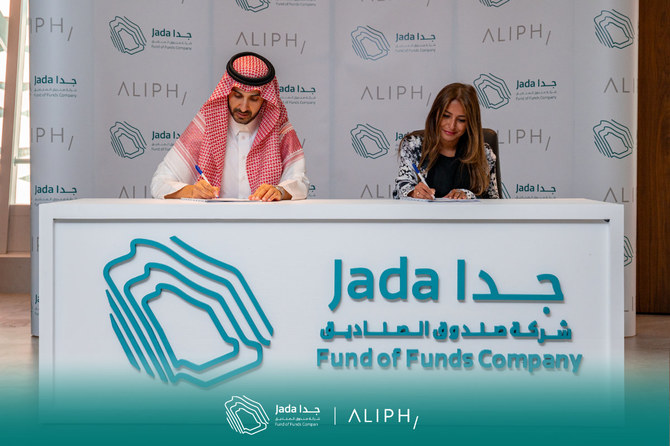CAIRO: Startups in the Middle East and North Africa region continue to attract robust investor interest, showcasing sustained vitality in entrepreneurial activity.
In August 2023, MENA startups raised over $76 million through 18 deals which fares well against the broader Middle East, Africa, and Pakistan region, which raised $139 million across 46 deals in the same period, according to venture data research firm MAGNiTT.
Notably, the MENA region accounted for two of the three exits recorded in the Middle East, Africa, and Pakistan in August, highlighting its growing role in the global startup ecosystem.
However, these promising figures come on the heels of a challenging first half of 2023. In the initial six months, the region attracted $1.1 billion in capital across 193 deals, reflecting a year-on-year decline of 41 percent.
Nevertheless, this decline is notably better than the average global funding drop of 52 percent.
While MENA’s deals declined by 49 percent, it was a steeper drop compared to the 25 percent decline in international deals.
The report also delves into sectoral performance, revealing that despite a 51 percent year-on-year fall in deal numbers, fintech continues to dominate.
E-commerce and retail followed suit, boosted by significant investments in Saudi Arabia’s Nana and Floward, which accounted for 80 percent of the sector’s total funding in the first half of the year.
In contrast, the transport and logistics sector faced significant challenges, with funding shrinking by almost 90 percent, and deal numbers halved compared to the first half of 2022.
Overall, MENA’s startup ecosystem shows resilience and potential, especially in sectors like fintech and e-commerce. The two notable exits in August provide optimistic indicators for the region’s investment landscape moving forward.
PIF’s Jada commits to Aliph Capital’s GCC fund
Small and Medium Enterprises in Saudi Arabia are poised to receive a boost as Jada Fund of Funds Co., a firm owned by the Public Investment Fund, announces a strong commitment to Aliph Capital’s Gulf Cooperation Council-focused fund, Aliph Fund I.
This move aligns with Jada’s dedication to strategic, sustainable investments made through private equity and venture capital.
Bandr Alhomaly, CEO of Jada, emphasized the joint objective of supporting SMEs, integral components of Saudi Arabia's economic framework, by providing them with crucial capital, talent, and technology.
“We believe that strong managers play a key role by applying their expertise in selecting good assets and guiding portfolio companies toward contributing to Saudi Arabia’s economic diversification objectives,” said Alhomaly.
Aliph Capital, an alternative investment manager domiciled in the Abu Dhabi Global Market, targets commitments of up to $250 million. The fund, anchored by the Abu Dhabi Developmental Holding Co., focuses on high-quality mid-sized firms across the GCC. Its strategy closely aligns with Jada’s goals, emphasizing value creation and digital transformation.
Expressing gratitude for Jada’s significant investment, Huda Al-Lawati, founder and CEO of Aliph Capital, said: “The potential of SMEs within the Kingdom of Saudi Arabia is vast, and I am delighted that Aliph Capital has the opportunity to play an impactful role in realizing that opportunity.”
UAE fintech MALY raises $1.6m in pre-seed round
UAE fintech startup MALY has secured $1.6 million in pre-seed funding from a consortium of regional angel investors.
Founded in 2022, MALY has positioned itself as a platform focused on financial literacy, empowering users to manage their finances smartly through an intuitive app and a bank-linked card. Users can save, invest, and make informed spending decisions all under one roof.
“Our mission is simple yet profound: to make improving financial wellness accessible for individuals across the MENA region,” said Mo Ibrahim, co-founder and CEO of MALY.
This new injection of capital is earmarked to bolster MALY’s ambitious expansion plans into other GCC markets and MENA countries.
Rewaa raises $27m in Series A funding led by Wa’ed Ventures
Rewaa, a leading full-stack inventory management platform for the retail industry, has raised $27 million (SR100 million) in a Series A funding round.
The round was led by Wa’ed Ventures, the Kingdom-based VC fund wholly owned by Aramco, with participation from STC’s Corporate Innovation Fund and other prominent investors.
Rewaa marks CIF’s first venture investment in Saudi Arabia since its launch.
Other participating investors included Silicon Valley’s Graphene Ventures, Sadu Capital, Vision Ventures, Khwarizmi Ventures, RZM Investment, Derayah VC, and Abdulrahman Sulaiman Al Rajhi & Sons Investment Co.
Since its inception in 2018, Rewaa has processed over SR7 billion in transaction value, positioning it as one of Saudi Arabia's fastest-growing SaaS companies in the MENA region. The company specializes in omnichannel inventory management software.
“By contributing to the industry’s digital transformation through the creation of a globally competitive product, we aim to make a significant impact on retail merchants, empowering them to deliver unparalleled service with heightened efficiency,” said Mohammed Alqasir, co-founder and CEO at Rewaa.
Rewaa, which has served more than 7,000 retailers in the Kingdom and abroad, creating over 250 local jobs, provides retailers with a cloud-based integrated solution that synchronizes online and physical store inventory seamlessly.
Fahad Alidi, managing director at Wa’ed Ventures, noted that Rewaa’s approach perfectly addresses the needs of the typically-scattered retail industry, and the investment aims to support the retail market’s technological development.
Majed Aljarboua, general manager at stc Corporate Funds and Entrepreneurship, added: “Through our investment, we seek to participate in developing technologies that support the retail market, including Rewaa'a company.”
















